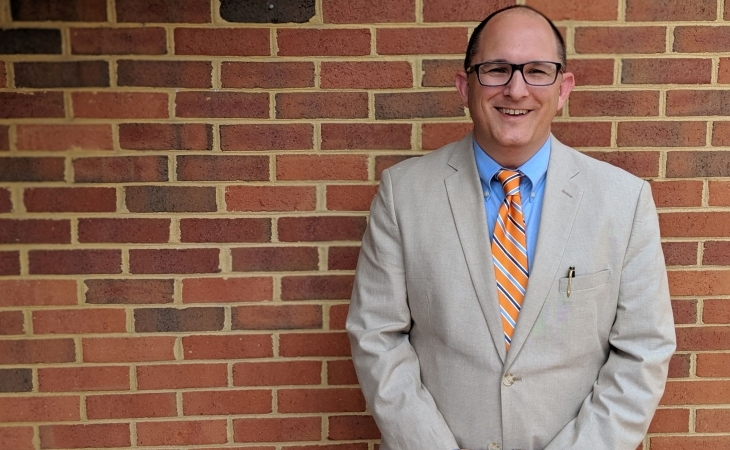Free Speech Victory for Virginia Teacher Fired Over ‘Transgender’ Pronoun Policy

The Virginia Supreme Court ruled in favor of a high school teacher who was fired for refusing to use male pronouns when referring to a transgender-identified female student.
Peter Vlaming was “in his seventh year teaching French at West Point High School, in Virginia,” when one of his female students began identifying as a boy. Vlaming did what he could to accommodate her, letting her choose a masculine French name to be used in the classroom, but he would not use masculine pronouns when referring to her.
This would have violated his conscience, as Alliance Defending Freedom (ADF), which filed the case on his behalf, explained in their complaint:
Mr. Vlaming’s conscience and religious practice prohibits him from intentionally lying, and he sincerely believes that referring to a female as a male by using an objectively male pronoun is telling a lie.
But the school district would not accommodate Vlaming:
Eventually, the school administration learned about Mr. Vlaming’s efforts to respect this student while also respecting his own conscience.
Unsatisfied, the school administration demanded that Mr. Vlaming use male pronouns when addressing or referring to this biologically female student-even when this student was not present. They demanded that he speak specific words.
The French teacher was given an ultimatum, “Use male pronouns for this female student or lose your job.”
The district was following guidance from the National Center for Transgender Equality, a radical transgender activist group, a “fact sheet,” which reads:
Students have the right to be addressed by the names and pronouns that they use. That’s true even if they haven’t legally changed their name or gender. If teachers and school officials refuse to use the right name and pronouns, they may be breaking the law.
Assistant Principal Suzanne Aunspach showed Vlaming the “fact sheet” and said that “it was potentially violating federal law and School Board policy to not use male pronouns” for the female student.
According to ADF, these were not West Point School Board policies, but came from NCTE, “a political advocacy organization.” Further, the policies were based on a guidance letter from the Department of Justice and Department of Education [under the Obama administration] that had since been repealed.”
The school district actually had no specific guidance with regard to male-female pronouns, and the principal of West Point High School accidentally used a female pronoun – not her preferred new male pronouns – for the student during the board hearing.
The case was elevated to the school board, where Vlaming “stated he couldn’t in good conscience comply,” with the demand to use male pronouns for the transgender-identified girl, so he was fired.
ADF then filed suit in the Circuit Court for the County of King William, “suing the school board for breach of contract and for violating his rights under the Virginia Constitution and commonwealth law.”
When the circuit court dismissed his suit, Vlaming appealed to the Virginia Supreme Court. Their ruling means his breach of contract case can move forward.
ADF Senior Counsel Chris Schandevel, who argued the appeal before the court, commented on the decision, saying:
Peter wasn’t fired for something he said; he was fired for something he couldn’t [emphasis added] say. The Virginia Supreme Court rightly agreed that Peter’s case against the school board for violating his rights under the Virginia Constitution and state law should proceed.
Schandevel added:
As a teacher, Peter was passionate about the subject he taught, was well-liked by his students, and did his best to accommodate their needs and requests. But he couldn’t in good conscience speak messages that he doesn’t believe to be true, and no school board or government official can punish someone for that reason.
The court quoted the U.S. Supreme Court in the case Sherbert v. Verner, on the importance of upholding freedom of speech:
Government may neither compel affirmation of a repugnant belief … nor penalize or discriminate against individuals or groups because they hold religious views abhorrent to the authorities.
The Virginia Supreme Court noted that this view “seeks to protect diversity of thought, diversity of speech, diversity of religion, and diversity of opinions,” adding:
Absent a truly compelling reason for doing so, no government committed to these principles can lawfully coerce its citizens into pledging verbal allegiance to ideological views that violate their sincerely held religious beliefs.
The case is Vlaming v. West Point School Board.
Related articles and resources:
Christian Teacher Sues After Being Suspended for Refusing to Use ‘Preferred Pronouns’
Florida Teacher Sent to Principal’s Office for Refusing to Use Female Pronouns for Male Student
Teacher Fired For Not Using Student’s “Preferred Pronouns”
What’s Your School District’s ‘Transgender’ Policy?
Image credit: ADF
ABOUT THE AUTHOR
Jeff Johnston is a culture and policy analyst for Focus on the Family and a staff writer for the Daily Citizen. He researches, writes and teaches about topics of concern to families such as parental rights, religious freedom, LGBT issues, education and free speech. Johnston has been interviewed by CBS Sunday Morning, The New York Times, Associated Press News, The Christian Post, Rolling Stone and Vice, and is a frequent guest on radio and television outlets. He graduated Phi Beta Kappa from San Diego State University with a Bachelors in English and a Teaching Credential. He and his wife have been married 30 years and have three grown sons.
Related Posts

Sidewalk Evangelist Wins Right to Share Good News
October 31, 2025



